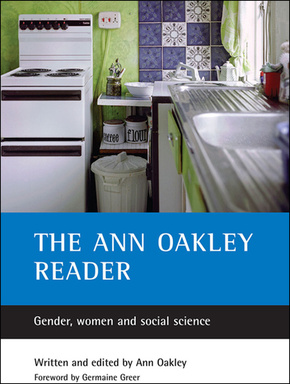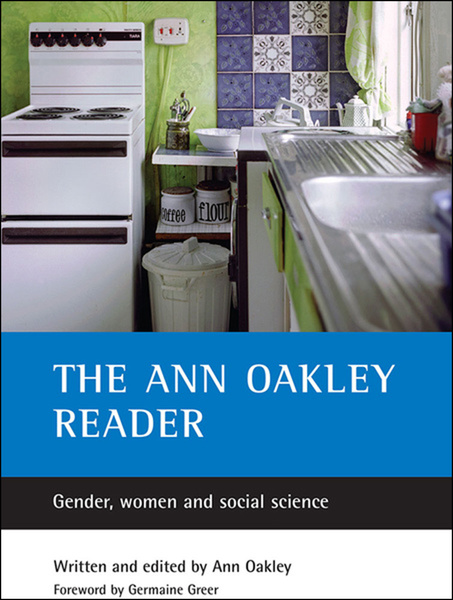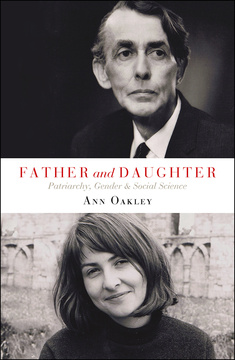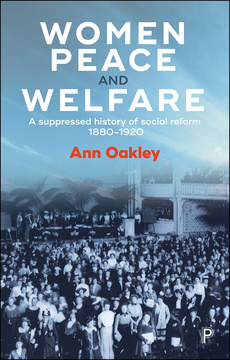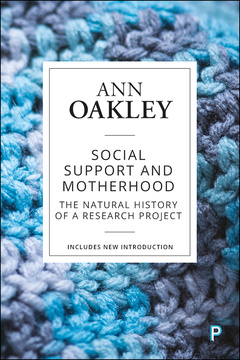Published
Jun 29, 2005Page count
320 pagesISBN
978-1861346919Dimensions
240 x 172 mmImprint
Policy PressThis book brings together edited extracts from classic texts by the internationally renowned feminist sociologist, Ann Oakley. Many of Oakley's early works are out of print and this collection makes them available again. There are extracts from pioneering studies such as Sex, Gender and Society, The Sociology of Housework, Becoming a Mother and Women Confined, presented alongside some of Ann Oakley's more recent reflections on methodology, scientific method and research practice.
The book illustrates how Oakley's thinking has evolved over a period in which much in the field of gender and women's studies has changed. Each section of the book is prefaced by Oakley's reflections on how her original studies relate to more recent research and theoretical perspectives. There are many points of intersection with modern debates about how (and whether) to 'do' gender and what terms such as 'women' and 'men' really mean. The result is a valuable commentary on thirty years' work on women, gender and social science methodology which will be of interest to many, especially undergraduate and A-level students, as well as all those grappling with current issues about the past and future of work in the contested areas of gender, women's studies and feminist social science.
Ann Oakley is one of Britain's most important feminist sociologists. She has transformed the way that we think about gender, housework, motherhood and methods. This excellent collection provides easy access to her classic works and combines this with an illuminating contemporary commentary." Sylvia Walby, School of Sociology and Social Policy, University of Leeds
"Oakley articulately demonstrates the importance of her work to contemporary debates, from those about the validity of the study of gender and what terms such as 'women' and 'men' actually mean, to the nature and future of work. ... it provides welcome brain food combined with the warm glow of nostalgia. I loved it." SRA News
"... a very effective synopsis of her work. ... Oakley's Reader is a highly valuable commentary on her work on women, gender and social science methodology." Social Policy
"Ann Oakley's writing was the 'coming to consciousness' for many women in the
seventies - the first analysis of the circumstances in which they found themselves. Oakley has edited her earlier accounts ... what is surprising and depressing is how relevant her analysis of the basic mechanisms of women's oppression still is. In the updated version even more information and debate has been compressed and organised into cool and cogent discussion." Professor Germaine Greer
Ann Oakley is Professor of Sociology and Social Policy, and Founding Director of the Social Science Research Unit at the Institute of Education, University of London. She has been researching and writing on topics relating to the position of women, gender, reproduction, family life and the role and construction of women in academic culture for forty years. Her work is widely cited by school and university students and others within and outside academia as having pioneered a feminist social science.
Contents: Part 1: Sex and gender: Introduction; The difference between sex and gender; Genes and gender; A kind of person; Childhood lessons; Science, gender and women's liberation;
Part 2: Housework and family life: Introduction; On studying housework; Images of housework; Work conditions; Standards and routines; Marriage and the division of labour; Helping with baby; Housework in history and culture;
Part 3: Childbirth, motherhood and medicine: Introduction; The agony and the ecstasy; Lessons mothers learn; Medical maternity cases; Mistakes and mystiques of motherhood;
Part 4: Doing social science: Introduction; The invisible woman: sexism in sociology; Reflections thirty years on; On being interviewed; Interviewing women: a contradiction in terms?; Who's afraid of the randomised controlled trial? Some dilemmas of the scientific method and 'good' research practice; Paradigm wars: some thoughts on a personal and public trajectory.







